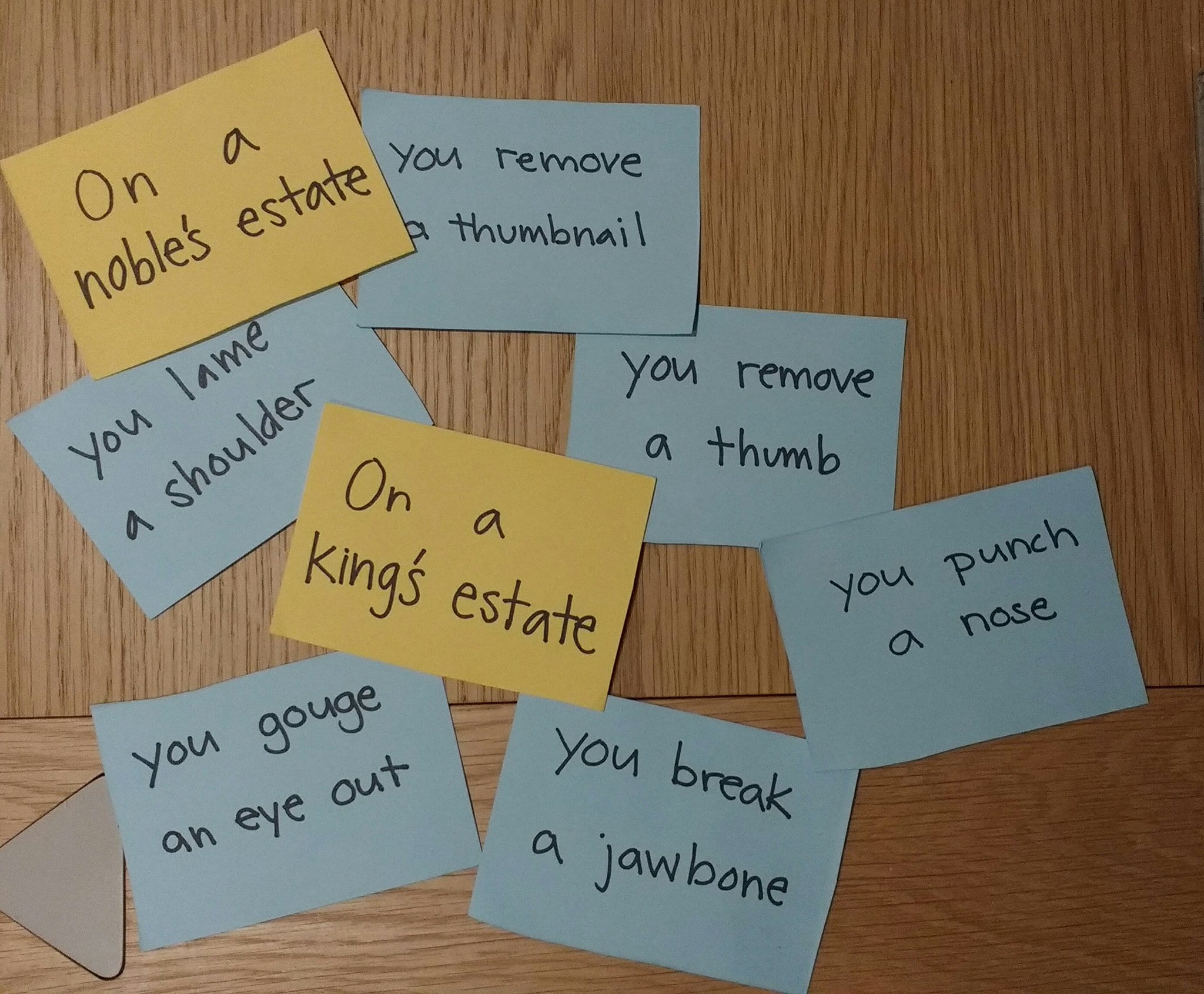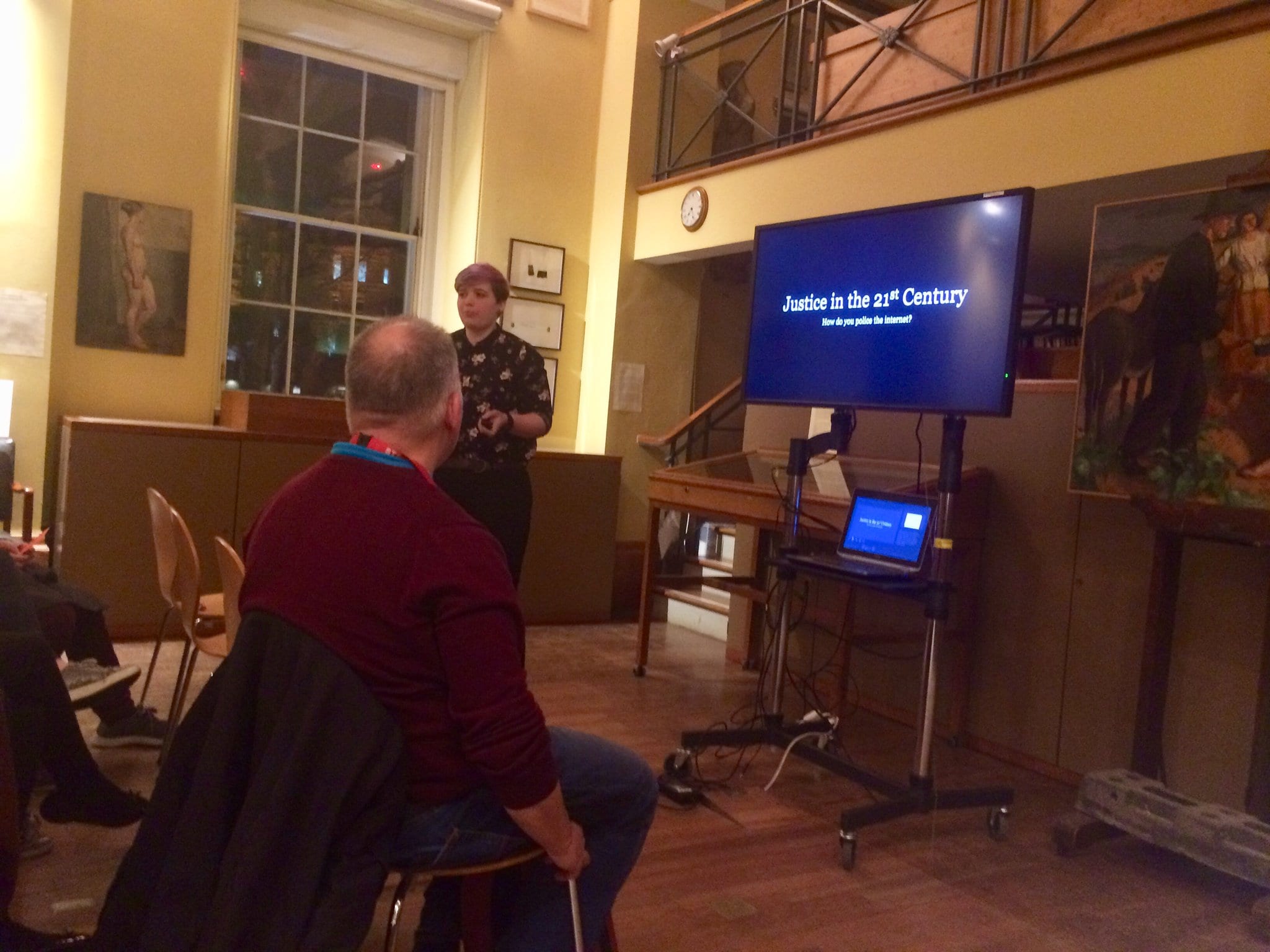An Evening Dealing Out “Justice”
By Arendse I Lund, on 4 April 2018
Last week, we held our first event of 2018 in the UCL Art Museum where three of us PhD students — Josie Mills, Cerys Bradley, and myself — all approached the topic of “justice” from different perspectives and vastly different disciplines.
Josie spoke about the idea of justice amongst the Neanderthals and what theories scholars have for any type of justice system in the Palaeolithic era. By talking about the factors we need for a crime to happen, she described from an archaeological view whether or not there was rock solid evidence for a Palaeolithic justice system. Turns out, there isn’t — at least not yet!
She drew comparisons to the modern Inuit justice system, and discussed whether they could tell us anything about tribal justice at large. Taking questions from the audience, Josie disabused us of the notion that Neanderthals are completely different from modern humans or that they ran around bashing each other on the head with rocks. This is a topic she’s well accustomed to discussing; she has also written extensively on Palaeolithic burial practices and cannibalism amongst the Neanderthals.
Skipping from the Neanderthals to the Anglo-Saxons, I followed Josie’s talk with a discussion of justice in the year 600 CE. This was the year that King Æthelbert of Kent issued his law code. With its long list of clauses, Æthelbert’s law code was a comprehensive list of how to calculate the appropriate amount to pay someone if you wrong them somehow. This would theoretically make it easier to police crimes as families are paid off for their relative’s injury and therefore don’t need to attack in retaliation and start a blood feud.
As everyone arrived for the talk, they had been handed a piece of paper with an attack on a victim, the social status of those involved, or the location of the attack. I now invited the audience to play a game with me. We would attack a hypothetical Edwin of Kent and see what happened. For example, laming Edwin’s shoulder would cost us 30 shillings in the year 600 (an enormous sum). If Edwin was a freeman and our attack killed him, we would have to pay his family 100 shillings, broken up into two installments: 20 shillings at Edwin’s open grave, where a blood feud might erupt, and the remaining 80 shillings within the next 40 days. The location where we murder Edwin is also important in calculating how much we have to pay because through our actions, we might accidentally have insulted someone else. If our attack was on the king’s estate, then we would have to pay an additional 50 shillings to the Æthelbert for disrupting the peace.
The goal of this exercise was to show how expensive it was to injure or murder someone. But because of this exhaustive list of fines, for the first time in Anglo-Saxon law there are recognized crimes and standardized punishments, and there will theoretically be fewer blood feuds. The audience engaged with this talk and I received excellent feedback encouraging me to do another one in this style.
Jumping from the Anglo-Saxons to modern policing, Cerys spoke about attempting to enforce justice in the age of the Dark Net. As a doctoral student in the crime and security science department, Cerys studies people who buy drugs on the internet and how they react to different law enforcement interventions. In a fascinating discussion, Cerys showed how far we’ve come in policing crime but also how the modern justice system has not caught up with anonymous internet crime.
We moved from one-on-one crime with very little evidence of a justice system with the Neanderthals, to recognized crimes with standardized punishment for the Anglo-Saxons, to anonymized crime which doesn’t always have a standardized punishment in our modern world of the Dark Net. These types of interdisciplinary talks with different approaches to a common theme is something that excites me the most about working as part of the Student Engager team. It provides me greater insight into my own research by hearing about the resources and approaches of other disciplines.
At the end of the evening, we asked our audience members for feedback and to vote on which justice system they’d most like to live under. To my great surprise, the Anglo-Saxons won!
 Close
Close






